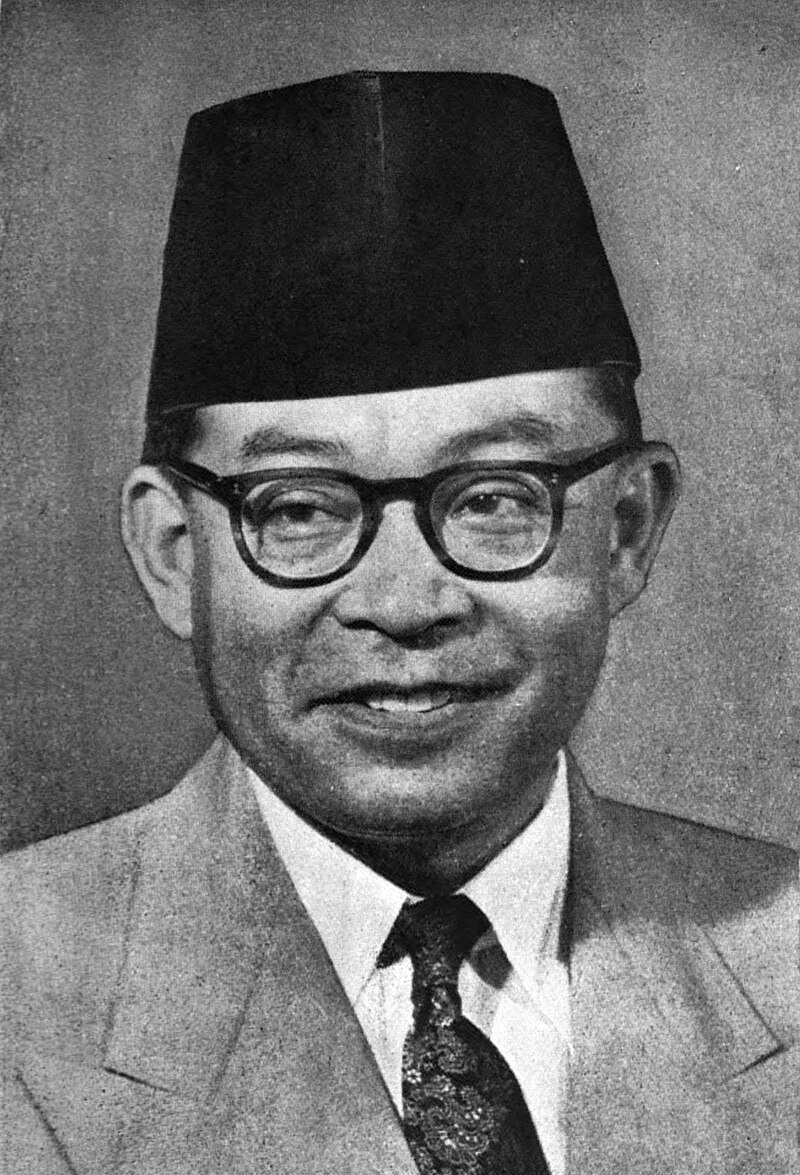
Bung Hatta
Bung Hatta, also known as Mohammad Hatta, was a prominent Indonesian statesman and the first Vice President of Indonesia. He is revered for his contributions to the country's independence movement and his role in drafting the country's constitution. Hatta was an advocate for democracy and economic development, promoting the principles of decentralization and regional autonomy, which are still relevant in discussions of Indonesian governance.
Born on Aug 12, 1902 (123 years old)
Global Media Ratings
Countries Mentioned
No country-level mention data available.
Interactive World Map
Each country's color is based on "Mentions" from the table above.
Recent Mentions
 Indonesia:
Bung Hatta referred to transmigration as a prerequisite for industrialization.
7
Indonesia:
Bung Hatta referred to transmigration as a prerequisite for industrialization.
7
 Indonesia:
Bung Hatta emphasized that democracy is not just a political system but also involves social justice for the people.
8
Indonesia:
Bung Hatta emphasized that democracy is not just a political system but also involves social justice for the people.
8
 Indonesia:
In the words of Bung Hatta, 'Indonesia merdeka bukan tujuan, melainkan permulaan', meaning independence is not the peak of achievement, but the starting point of historical responsibility.
8
Indonesia:
In the words of Bung Hatta, 'Indonesia merdeka bukan tujuan, melainkan permulaan', meaning independence is not the peak of achievement, but the starting point of historical responsibility.
8
 Indonesia:
Bung Hatta is referred to as the Father of Indonesian Cooperatives.
8
Indonesia:
Bung Hatta is referred to as the Father of Indonesian Cooperatives.
8
 Indonesia:
Bung Hatta's quote emphasizes the lack of brotherhood in a system that creates masters and slaves.
8
Indonesia:
Bung Hatta's quote emphasizes the lack of brotherhood in a system that creates masters and slaves.
8
 Indonesia:
Bung Hatta is mentioned as a key figure alongside Sumitro in shaping the nation's economic history.
8
Indonesia:
Bung Hatta is mentioned as a key figure alongside Sumitro in shaping the nation's economic history.
8
 Indonesia:
Bung Hatta viewed the decree as unconstitutional and a coup.
4
Indonesia:
Bung Hatta viewed the decree as unconstitutional and a coup.
4
 Indonesia:
Bung Hatta inspired the concept of economic independence in Indonesia.
7
Indonesia:
Bung Hatta inspired the concept of economic independence in Indonesia.
7
 Indonesia:
Bung Hatta inspired the concept of economic independence in Indonesia.
7
Indonesia:
Bung Hatta inspired the concept of economic independence in Indonesia.
7
 Indonesia:
Bung Hatta's principles are emphasized in the context of ethical governance.
7
Indonesia:
Bung Hatta's principles are emphasized in the context of ethical governance.
7